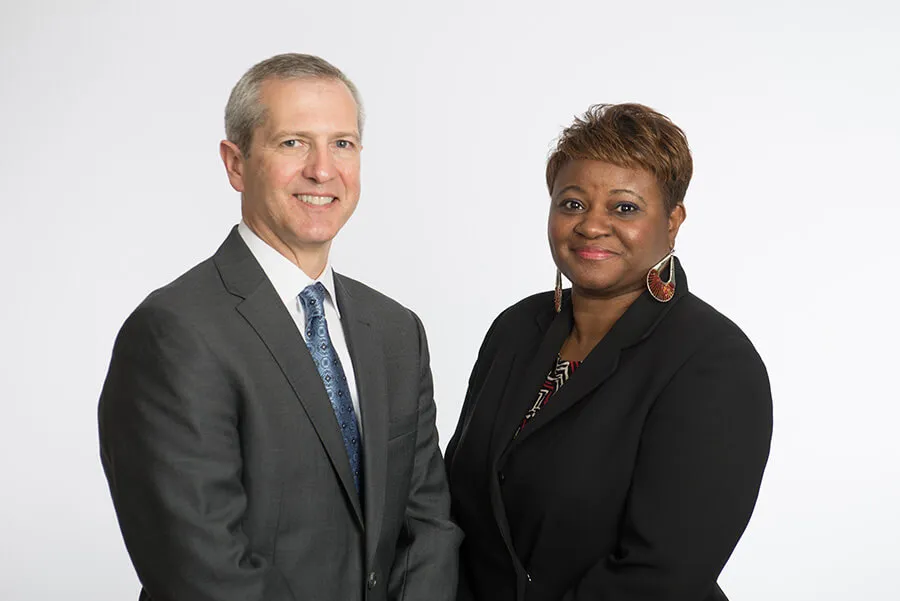In Georgia, parents are legally obligated to provide support for their minor children. Support includes providing food, shelter, clothing, medical care, and education. Additionally, parents must provide a safe environment for their children and must supervise their children. In Georgia, parental support obligations continue until the child reaches the age of majority (18) or age 20, if the child is enrolled full-time in a secondary school. Failing to provide basic support and a safe environment can lead to abuse and/or neglect charges for parents as children have the right to not be abused or neglected.
Infographics
Scroll down to our Parental Responsibility Laws infographic:
Georgia law protects children from both physical and emotional abuse by parents or other people. A parent’s duty to protect their children extends to protecting their children from abuse by others. Suspected abuse and/or neglect of a child can be reported to the Georgia Department of Family and Children Services (DFCS), a police officer, a juvenile court service worker, and others. In fact, reporting suspected child abuse is mandatory for certain professions such as doctors, nurses, teachers, social workers, law enforcement, etc.
While most people are familiar with a parent’s responsibility to their minor children, most people do not understand a parent’s responsibility for their children’s actions. Georgia, like many states, holds parents legally liable for the wrongdoing of their children. As an extension of a parent’s legal obligation to supervise his or her child, a parent can be held responsible for the acts of his or her children that harm another person or property. These laws are called Parental Responsibility Laws.
Parents are Liable for a Child’s Torts in Georgia
A tort is any conduct that results in harm to another person or property. The conduct can be intentional or simply negligent behavior. Parents will be financially responsible for the damage that resulted from the child’s conduct. Parents are also liable for the malicious or wilful acts of a child in Georgia. These are more serious offenses and often result in increased financial losses. Motor vehicle accidents are common in Georgia and are oftentimes the result of a teenage driver. Under the “Family Purpose Doctrine” a parent may be held financially responsible for the damages caused by the negligent driving of a child. For a parent to be held responsible under the Family Purpose Doctrine, he or she must have owned or had an ownership interest in the subject vehicle, the at-fault driver must have been a family member (minor child) living in the same household, and the child was given permission to drive the vehicle for his or her use and convenience.
Although Georgia has many laws regarding a parent’s liability for the acts of their children, a law need not exist for a parent to be held responsible. Parents in Georgia may still be liable under the common law. Parents have a general duty to use reasonable care in supervising their children and often have superior knowledge of their children’s propensities. In certain situations, knowing a child’s history or propensity for particular conduct can impose a duty on the parent to monitor and control their child’s behavior with additional care and restrictions.
Parental Responsibility Laws Additionally Apply to Bullying Cases in Georgia
Parents are liable for injuries caused by their child’s bullying in Georgia. Bullying is considered a malicious act. The law states that a parent can be held liable for up to $10,000.00 plus court costs for the wilful or malicious acts (bullying) committed by their minor child which cause harm (medical expenses and property damage) to another. Parents of younger kids who engage in bullying are often judged harsher as they are deemed to have more control over their young children’s behavior. The $10,000.00 limit on damages in this particular section of the law can be in addition to damages available under another section of the Parental Responsibility Laws. Therefore, the financial obligation can be significant.
Parental Liability for Malicious Acts in Georgia
Parents in Georgia are now liable for damages caused by their children. Liability under Georgia Code Section 51-2-3a extends to both property damage, such as vandalism, and medical bills that result in bodily injury. A parent whose child causes bodily injury or property damage could face financial responsibility for those damages.
The maximum limit of liability under Georgia law is $10,000 per person injured, plus court costs. This includes all damages resulting from the child’s actions. The parent’s insurance policy must cover this type of claim. If the parent does not carry liability coverage, he or she will be personally liable for the full amount of damages.
Parental Liability Under the Family Purpose Doctrine
The family purpose doctrine provides parents with limited liability for injuries arising out of the operation of automobiles used by members of the family. This doctrine applies even where the parent does not actually operate the vehicle. If the parent owns the vehicle, he or she is vicariously liable for any negligent acts committed by one of his or her children while operating it.
To determine whether a particular vehicle is being operated within the scope of the family purpose doctrine, courts consider several factors including:
- whether the vehicle is owned by the parent;
- who pays for repairs and maintenance;
- whether the child uses the vehicle exclusively for family purposes;
- where the vehicle is kept; and
- whether the parent controls the manner in which the vehicle is used.
Parents in Georgia May Still Be Liable Under Common Law
Georgia parents are still liable under common law for injuries caused by their children, even if the state’s parental responsibility statutes don’t apply. That’s according to the Georgia Supreme Court’s decision in Smith v. Southerland, which involved a car crash involving a 16-year-old boy and his mother. In that case, the court held that the mother was liable for her son’s negligence because she knew about his reckless behavior and did nothing to stop him.
The ruling came down just days after the state legislature passed a bill making it harder for minors to sue their parents for personal injuries. But the Smith decision suggests that parents could still face liability under common law for injuries their kids cause. “Even though the statute does not impose liability upon a person whose child negligently injures another,” the court wrote, “we conclude that such a person may nonetheless be liable for negligent supervision.”
Conclusion
In conclusion, the legal relationship between parents and their children is important and extends in both directions. Parent has a legal obligation to provide care and support to their children and to protect them from harm. However, if their child causes harm to another person or property, a parent can be held legally liable and therefore, financially responsible to the other person for their damages. It is essential to understand how the Parental Responsibility Laws work in Georgia.
Infographic




